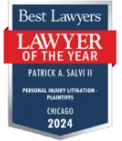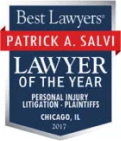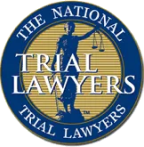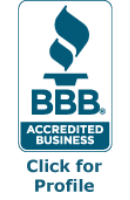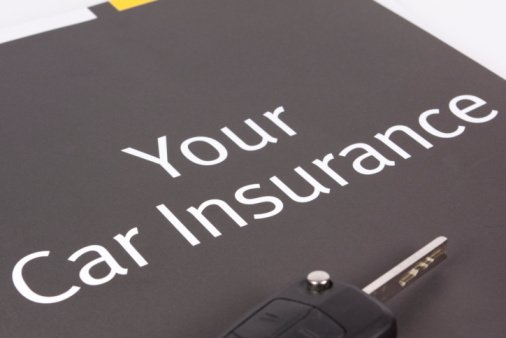
Understanding Your Auto Insurance Policy
At Salvi, Schostok & Pritchard, P.C., we understand that diving into insurance details can be daunting, especially after a stressful event like a car crash that was not your fault. If you are struggling to make sense of your auto insurance policy after a car accident in Illinois, we’re here to answer your questions and help guide you through the claims process so you can secure the compensation you’re entitled to. Contact us today to get started with a free case review.
Types of Auto Insurance
Whether you are a seasoned driver or just getting behind the wheel for the first time, understanding the types of auto insurance is important for protecting yourself, your passengers, and your vehicle. Below, we’ll break down the main types of auto insurance coverage and explain what each type covers.
Liability Coverage
Liability coverage is the foundation of most auto insurance policies. However, it does not pay for your injuries or damage to your vehicle. Instead, it ensures you can pay for any harm you cause to others in auto collisions. As the Insurance Information Institute explains, it covers other people’s expenses if you are liable (at fault) for a crash that injures someone else or damages their property. This type of insurance is essential, and most states require drivers to carry minimum amounts of liability coverage. In Illinois, the minimum liability insurance requirements are $25,000 in bodily injury to one person, $50,000 in bodily injury per crash, and $20,000 in property damage liability, according to the Illinois Secretary of State.
- Bodily Injury Liability
Bodily injury liability insurance covers medical expenses, lost wages, and pain and suffering for other people involved in a crash in which you are at fault. Importantly, it does not cover your own injuries. This type of coverage provides financial protection so you do not have to pay out-of-pocket if you’re liable for injuring someone else in a collision.
- Property Damage Liability
Property damage liability coverage pays for the repair or replacement costs for someone else’s property if it gets damaged in a crash where you are at fault. This could include other vehicles, buildings, fences, or any property damaged in the crash.
Medical Payments Coverage
Medical payments coverage, or MedPay, covers medical expenses you or your passengers incur after getting hurt in a collision, regardless of who was at fault. It can cover hospital visits, doctor appointments, surgeries, and other medically necessary expenses.
Uninsured Motorist Coverage
Uninsured motorist (UM) coverage applies if you are in a car crash caused by a driver who does not have any auto insurance, which includes hit-and-run drivers. It can cover your medical expenses and property damage costs. This coverage keeps you from having to pay out of pocket if the other driver cannot cover your losses.
Underinsured Motorist Coverage
Underinsured motorist (UIM) coverage is similar to uninsured motorist coverage but applies when the at-fault driver has insurance but not enough to cover all of your expenses. It fills the gap between what the at-fault driver’s insurance pays and what you owe, so you do not get stuck paying the difference.
Collision Insurance
Collision insurance covers damage to your vehicle from a collision with another vehicle or an object, like a tree or a pole, no matter who is at fault. This is optional coverage in all states, though some lenders or leasing companies might require it if you finance your vehicle.
Comprehensive Coverage
Comprehensive coverage pays for damage to your vehicle resulting from non-collision-related incidents, such as theft, vandalism, fire, natural disasters, and collisions with animals. Similar to collision coverage, this type of insurance is not mandatory in any state but might be necessary for leased or financed vehicles.
Gap Insurance
Gap insurance covers the difference between your vehicle’s current worth and the amount you would still owe on it if it were totaled. Since vehicles often depreciate quickly, gap insurance can save you from paying off a loan on a car you no longer have. Many lenders and leasing companies require you to purchase gap insurance when you finance or lease a new car.
Important Terms to Know in Your Auto Insurance Policy
Understanding your auto insurance policy is key to ensuring you have the right coverage when you need it. Within your policy, there are several important terms that you should understand so you know what your insurance will cover and how much assistance you might receive in case of a car crash. Here are the key terms you should know:
- Premium – Your premium is the amount you pay your insurance company to keep your auto policy active. The price of your premium depends on many factors, including the type of car you drive, your driving history, where you live, and the amount of coverage you choose.
- Deductible – Your deductible is the amount you agree to pay out of pocket before your insurance covers the rest of the claim costs. For example, if you have a $500 deductible and are involved in an incident that causes $2,000 worth of damage to your car, you would pay the first $500, and your insurance covers the remaining $1,500.
- Coverage Amounts – Coverage amounts or limits refer to the maximum amounts of money your insurance provider will pay for each type of coverage you have in the event of a claim. For instance, if your policy has a coverage limit of $100,000 for bodily injury liability per accident, that’s the most your insurance will cover for injuries to others if you are at fault.
- Declarations Page – A declarations page is a summary of your insurance policy. It lists the most important details of your coverage, including the insured vehicles, drivers, coverage types, coverage amounts, deductibles, premiums, and policy period.
Your policy jacket may include additional information, such as exclusions and conditions of your policy.
Understanding How Car Insurance Claims Work in Chicago
Illinois operates under an at-fault system for car accident insurance claims. This means that a driver who is at fault for a collision (or their car insurance company) is responsible for paying for any injuries or property damage they cause. If you are at fault, your auto liability coverage covers the other party’s medical and property damage costs up to your policy’s limits. Conversely, if another driver is at fault, their insurance should cover your expenses.
The Process of Filing an Insurance Claim
Filing an auto insurance claim after a car crash starts with contacting the insurance company for the at-fault driver to report the incident. During this initial call, you provide details about the crash and the extent of any damage or injuries. The insurer assigns a claims adjuster, who will review the accident report, assess damage to your vehicle, and possibly interview witnesses to determine fault.
Based on their evaluation, the adjuster will either deny your claim or offer a settlement to cover your expenses. If you accept the settlement, you forfeit any right to request payment for additional damages.
It is still a good idea to contact an experienced car accident lawyer as soon as possible before initiating the claims process. They can offer valuable guidance, protect your rights, and negotiate a fair settlement on your behalf. They can also represent you in court if your claim escalates to a lawsuit.
When It’s Necessary to File a Personal Injury Lawsuit
A personal injury lawsuit may be necessary if your insurance settlement doesn’t adequately cover your losses. This can occur if there are disputes over fault or the insurance company refuses to offer a fair settlement. In these cases, a lawyer can file a personal injury lawsuit on your behalf to seek the compensation you need to cover your current and future losses stemming from the crash.
How an Experienced Car Crash Lawyer Can Help with Your Car Insurance Policy
Do you need help understanding your rights and insurance coverage after an auto accident in Illinois? Salvi, Schostok & Pritchard, P.C. has over 40 years of experience and has secured over $2.5 billion in compensation for our injured clients. Contact us to learn how we can help you in a free consultation.


